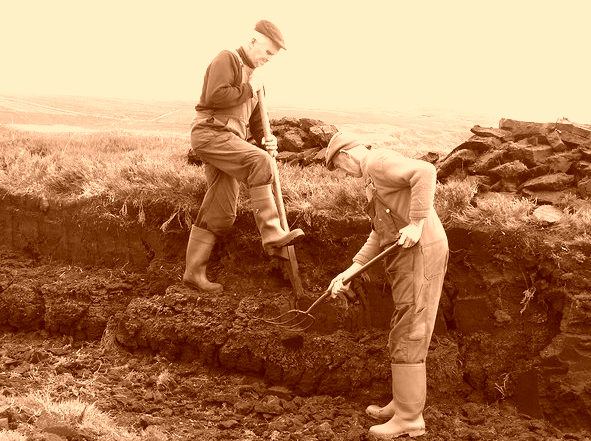|
‘Digging’ by Seamus Heaney
A poem with a similar theme to ‘For My Grandmother Knitting’, which I use in conjunction with it, is Seamus Heaney’s ‘Digging’. I remember first coming across this poem during my A-Level English Literature studies and being fascinated by the skill with which Heaney’s carefully chosen words bring the image of his father’s work into such sharp relief. He truly does ‘dig deep’ for the ‘good turf’ of linguistic clarity and poetic beauty. The parallels that he manages to draw between the seemingly irreconcilable worlds of farm labouring and writing helped me to appreciate for the first time the true value of creative writing, the sheer effort that goes into it and the meaningful, satisfying, life-giving product that comes from it. Studying ‘Digging’ with Year 7 children, I encourage them to ‘go digging’ in keeping with the spirit of the poem. I ask them to put their favourite words from the poem onto a Mindmap and make any links that interest them. I don’t give them a set approach; the important thing is that they delve into the words and see what they find. Some children prefer to take a thematic approach, creating a ‘DIGGING’ bubble and a ‘WRITING’ bubble and mapping out words which connect the two. This can yield some fascinating ideas that might otherwise be missed in more of a linear reading. For example, Matthew, aged 11, was drawn to the description of the writer’s pen as ‘squat’, as it made him visualise the father squatting down to dig. He added that it also helped him to hear the splat of the soggy peat. Jenny, also 11, asked what potato drills were. On finding out that they were the furrows in which the potatoes are planted, she connected that to her ‘WRITING’ bubble with the comment that the lines of ploughed furrows are like the lines of words produced by a poet. She added that her mother would often talk about spelling ‘drills’ and so this had now created a new link in her mind between the use of words and the ploughing of fields. These explorations of the hidden links between words, images and sounds enabled the children to understand the need for rigour in their own poetry. Seeing the parallels between a hard day’s work in the field, with its accompanying sense of satisfaction, and the work of the writer who dedicates proper time and effort to the ultimate benefit of the end product is a lesson well worth giving. If children can assimilate the idea that writing for pleasure is a serious undertaking, that is worth doing properly, they will certainly reap the rewards in the form of better quality writing and improved overall literacy. The House of Memories I remember our house The life I used to live in it The joy of my bedroom like a wide smile And the excitement on the trampoline It would make me surge with happiness The days of laughter and love The days of creation and courage It was as sweet as shiny sugar On a warm day being caramelised Your imagination will drip away from you Like sticky, sweet, melted sugar Oscar, aged 12
0 Comments
|
AuthorSixteen years of teaching poetry to children have furnished me with a wealth of ideas. Do dip in and adapt any of these for your own lessons. Archives
April 2020
Categories
All
|


 RSS Feed
RSS Feed
